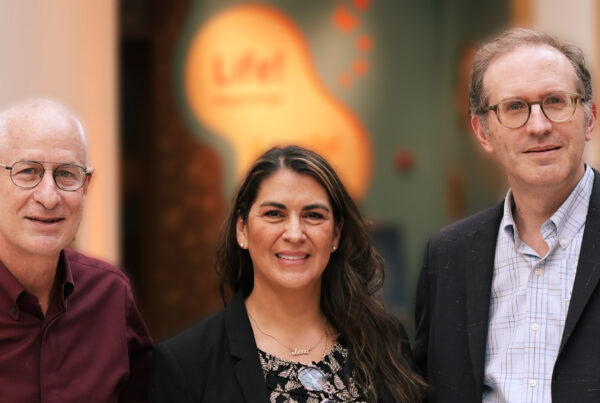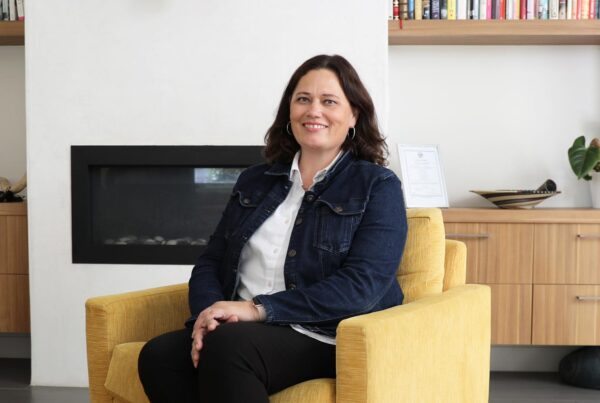A new USC study will harness cutting-edge molecular tools to better predict dementia risk in older adults from historically underrepresented communities, thanks to support from the 2025 Hanson-Thorell Family Research Award.
USC Leonard Davis School of Gerontology Assistant Professor and Edward L. Schneider, MD, Chair in Gerontological Research Lauren Brown received the award for her proposal, “Using Epigenetic Clocks for Earlier Diagnosis in Populations with Elevated Dementia Risk.” The study will focus on improving the accuracy of “epigenetic clocks” — biological age measures based on DNA methylation, or how genes are activated or inactivated — for Black and Latine older adults. These populations often face higher dementia risk but are more likely to be misdiagnosed or diagnosed late, Brown explained.
“Epigenetic clocks hold enormous promise for forecasting if and when age-related diseases like Alzheimer’s are most likely to develop,” Brown said. “But because these algorithms were trained primarily on European samples, they often underperform in racially and ethnically diverse populations. My project aims to help close that gap.”
Epigenetic clocks estimate biological age by tracking patterns of chemical changes in DNA across tissues. A growing body of evidence shows that accelerated “epigenetic aging” is linked to frailty, cancer, obesity, mortality and, importantly, cognitive decline. However, studies have found inconsistent results when applying the same clock models to different racial and ethnic groups, raising concerns about their generalizability.
Brown’s study will leverage stress, biological and cognitive data from the Health and Retirement Study, a large nationally representative dataset, to retrain and refine these biological age predictors specifically for Black and Latine populations. The project aims to demonstrate that more inclusive models can better capture dementia risk and improve early detection.
“If we can develop more accurate tools for identifying dementia risk earlier, we can give individuals and families more time to plan and present clinicians with better opportunities to intervene,” Brown said. “That’s especially important in communities that have long faced barriers to diagnosis and care.”
Each year, the Hanson-Thorell Family Research Awards support innovative projects by USC Leonard Davis School junior faculty that advance the science of aging and age-related disease. Brown’s study is designed to lay the groundwork for a future National Institutes of Health R01 grant using longitudinal DNA methylation data to track changes in cognition over time.
“I’m grateful for the support provided by this award,” Brown said. “It provides an important pathway toward research that can transform dementia prediction and prevention for diverse aging populations.”
The Hanson-Thorell awards are supported in part by Board of Councilors Chair Shari Thorell ’65 and her husband, Bob. The awards originated with funding from Shari’s father, former Board of Councilors Chairman Al Hanson.





